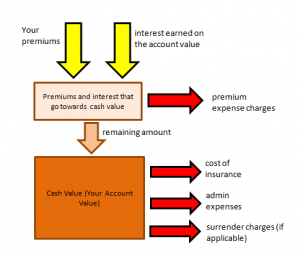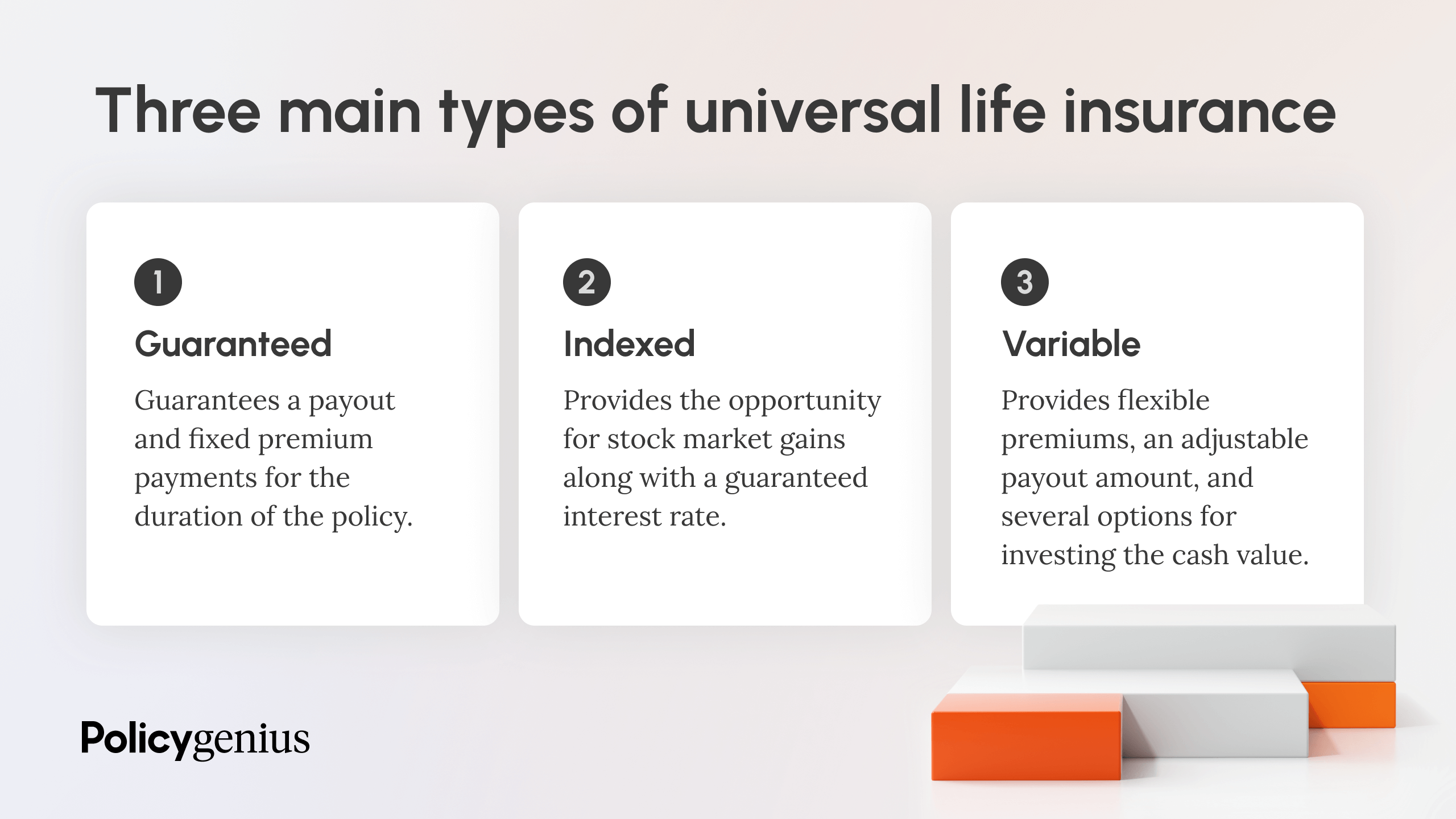All Categories
Featured
Table of Contents
Do they compare the IUL to something like the Lead Total Amount Supply Market Fund Admiral Shares with no tons, an expenditure ratio (EMERGENCY ROOM) of 5 basis factors, a turnover ratio of 4.3%, and an exceptional tax-efficient record of distributions? No, they contrast it to some awful actively handled fund with an 8% tons, a 2% ER, an 80% turnover ratio, and a terrible record of temporary funding gain distributions.
Mutual funds commonly make yearly taxed distributions to fund proprietors, even when the value of their fund has actually gone down in value. Common funds not just require income coverage (and the resulting annual taxes) when the shared fund is increasing in worth, yet can additionally impose revenue tax obligations in a year when the fund has actually gone down in value.
You can tax-manage the fund, harvesting losses and gains in order to lessen taxed circulations to the investors, however that isn't in some way going to transform the reported return of the fund. The ownership of mutual funds may need the common fund proprietor to pay estimated tax obligations (iul for dummies).

IULs are simple to place to make sure that, at the owner's death, the beneficiary is exempt to either revenue or inheritance tax. The very same tax obligation decrease methods do not function nearly as well with mutual funds. There are numerous, typically expensive, tax catches connected with the timed trading of common fund shares, traps that do not use to indexed life insurance policy.
Chances aren't really high that you're going to be subject to the AMT as a result of your shared fund distributions if you aren't without them. The remainder of this one is half-truths at best. As an example, while it holds true that there is no earnings tax because of your heirs when they acquire the profits of your IUL plan, it is also real that there is no earnings tax obligation because of your beneficiaries when they inherit a common fund in a taxable account from you.
Best Indexed Universal Life
There are much better ways to prevent estate tax concerns than acquiring investments with reduced returns. Common funds might create earnings tax of Social Safety and security benefits.

The development within the IUL is tax-deferred and might be taken as tax free income via loans. The policy owner (vs. the mutual fund supervisor) is in control of his or her reportable income, hence enabling them to decrease and even remove the taxation of their Social Protection advantages. This is terrific.
Below's an additional marginal concern. It holds true if you purchase a shared fund for claim $10 per share prior to the circulation date, and it distributes a $0.50 distribution, you are then mosting likely to owe tax obligations (probably 7-10 cents per share) in spite of the fact that you have not yet had any kind of gains.
In the end, it's actually concerning the after-tax return, not just how much you pay in tax obligations. You are going to pay more in taxes by using a taxable account than if you buy life insurance coverage. But you're also probably going to have even more cash after paying those taxes. The record-keeping requirements for owning common funds are dramatically much more complex.
With an IUL, one's records are maintained by the insurance provider, duplicates of yearly declarations are mailed to the owner, and distributions (if any type of) are completed and reported at year end. This set is also sort of silly. Of training course you ought to keep your tax records in situation of an audit.
Variable Universal Life Calculator
All you have to do is shove the paper into your tax obligation folder when it shows up in the mail. Barely a factor to get life insurance coverage. It's like this individual has never bought a taxable account or something. Mutual funds are generally part of a decedent's probated estate.
Additionally, they are subject to the delays and expenses of probate. The earnings of the IUL policy, on the various other hand, is constantly a non-probate circulation that passes beyond probate directly to one's named recipients, and is consequently exempt to one's posthumous lenders, unwanted public disclosure, or similar hold-ups and expenses.
We covered this one under # 7, however simply to evaluate, if you have a taxable shared fund account, you need to place it in a revocable trust (or perhaps easier, make use of the Transfer on Fatality classification) in order to stay clear of probate. Medicaid incompetency and lifetime revenue. An IUL can give their proprietors with a stream of income for their entire life time, despite how much time they live.

This is beneficial when organizing one's affairs, and converting assets to income prior to a nursing home arrest. Shared funds can not be converted in a similar manner, and are generally considered countable Medicaid properties. This is another dumb one advocating that inadequate individuals (you recognize, the ones who require Medicaid, a government program for the inadequate, to pay for their assisted living facility) should make use of IUL as opposed to mutual funds.
Nationwide Indexed Universal Life Accumulator Ii
And life insurance policy looks terrible when compared rather versus a pension. Second, individuals that have cash to get IUL above and past their retirement accounts are mosting likely to have to be horrible at managing cash in order to ever get approved for Medicaid to spend for their assisted living facility expenses.
Persistent and terminal illness biker. All plans will permit an owner's very easy accessibility to money from their policy, commonly waiving any surrender fines when such people experience a major disease, need at-home treatment, or come to be confined to a retirement home. Shared funds do not give a comparable waiver when contingent deferred sales costs still put on a shared fund account whose proprietor needs to market some shares to fund the expenses of such a stay.
Difference Between Whole Life Vs Universal Life
You get to pay even more for that benefit (rider) with an insurance coverage policy. What a lot! Indexed universal life insurance gives survivor benefit to the recipients of the IUL proprietors, and neither the proprietor nor the recipient can ever lose money due to a down market. Common funds give no such warranties or survivor benefit of any kind of kind.
I absolutely do not require one after I reach financial freedom. Do I want one? On average, a buyer of life insurance pays for the true cost of the life insurance policy benefit, plus the expenses of the plan, plus the revenues of the insurance business.
Nationwide Universal Life Insurance
I'm not totally certain why Mr. Morais included the whole "you can't lose cash" once more right here as it was covered fairly well in # 1. He just wished to repeat the best selling factor for these points I mean. Once again, you don't lose nominal dollars, but you can shed actual dollars, in addition to face significant opportunity price as a result of reduced returns.

An indexed global life insurance policy policy proprietor may exchange their plan for an entirely different plan without causing earnings tax obligations. A mutual fund proprietor can stagnate funds from one shared fund business to another without offering his shares at the former (therefore triggering a taxable event), and redeeming brand-new shares at the latter, often based on sales charges at both.
While it is real that you can exchange one insurance coverage for another, the reason that people do this is that the initial one is such a horrible policy that also after buying a new one and undergoing the very early, adverse return years, you'll still appear in advance. If they were marketed the right policy the very first time, they should not have any type of wish to ever before trade it and go through the very early, adverse return years again.
Latest Posts
History Of Universal Life Insurance
Universal Life Insurance With Living Benefits
Accumulation At Interest Option